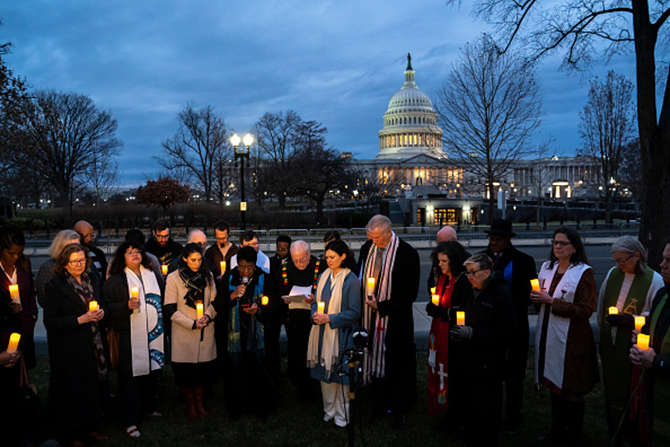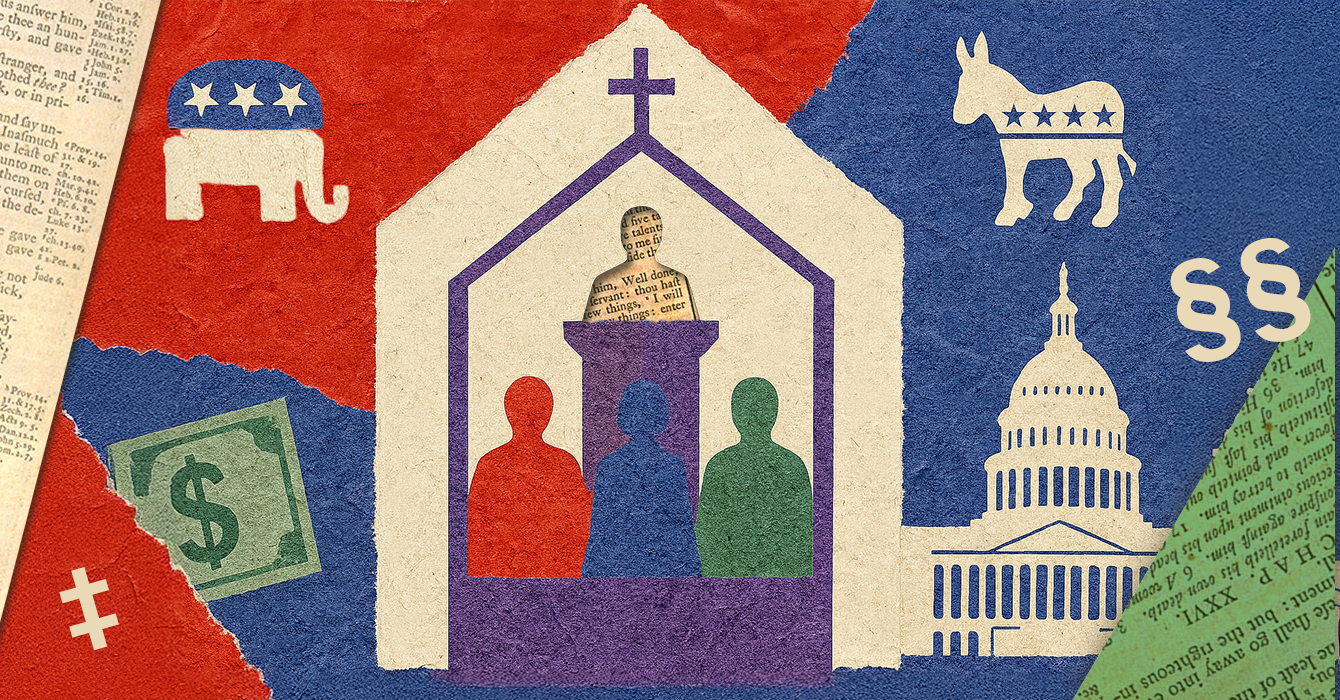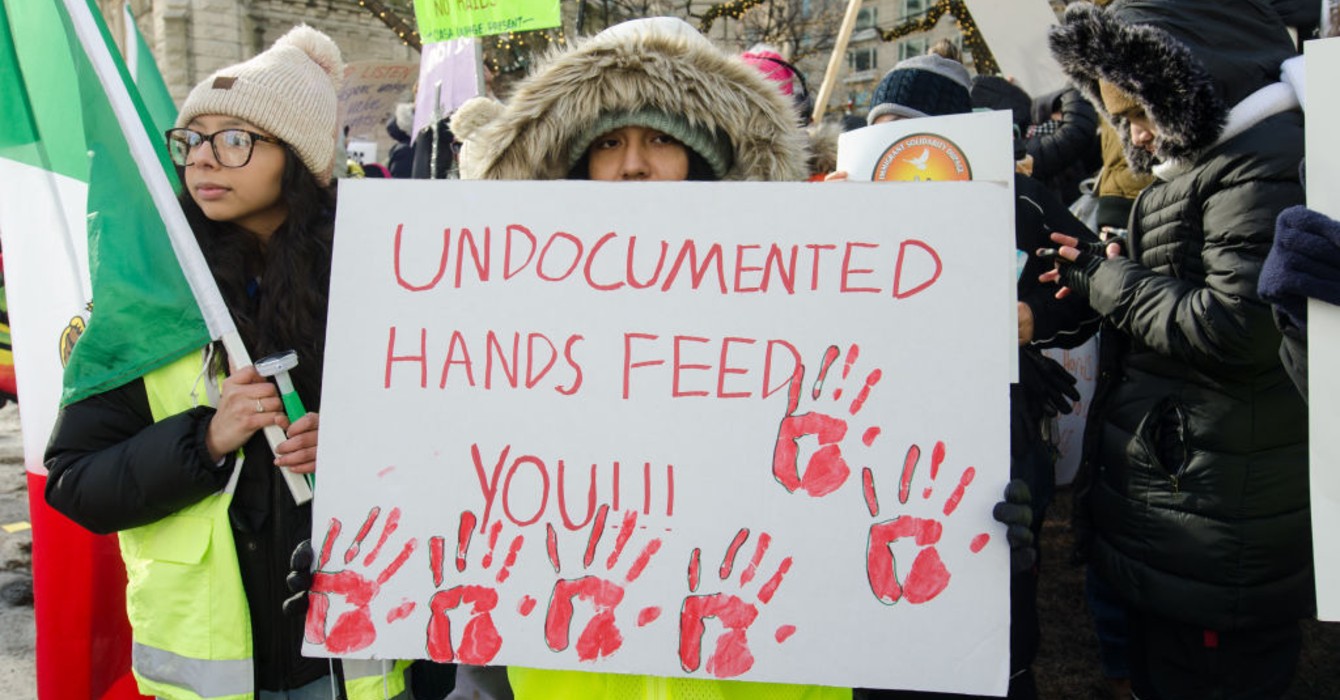I spent a significant part of 2022 working with my team at BJC (Baptist Joint Committee for Religious Liberty) and our partners to bring attention to the role of Christian nationalism in the Jan. 6 attack on the U.S. Capitol.
In February, we co-published a comprehensive report on the topic with the Freedom From Religion Foundation. In March, we briefed members of the Congressional Freethought Caucus on our findings. In June, I joined with a number of other Christian leaders in formally requesting that the House select committee investigating the Jan. 6 attack on the U.S. Capitol examine the role Christian nationalism played. And on Dec. 13, I testified before the U.S. House Oversight Committee’s Subcommittee on Civil Rights and Civil Liberties about the links between Christian nationalism and white supremacy.
“Christian nationalism helped fuel the attack on the U.S. Capitol on Jan. 6, uniting disparate actors and infusing their political cause with religious fervor,” I said before Congress.
Christian nationalism is a political ideology and cultural framework that seeks to merge American and Christian identities. I felt momentum building within the Jan. 6 committee and in the media around the need to reckon with the religious language and symbols that were part of the insurrection and events leading up to it. Yet in the committee’s final report, issued Dec. 22, Christian nationalism was conspicuously absent.
Why didn’t Christian nationalism show up in the select committee’s report? We don’t know with certainty, but my suspicion is a reluctance to include any mention of religious language or symbols for fear of coming off as anti-Christian.
If that’s indeed the case, it’s a reminder to all of us who are Christians to make it clear that addressing Christian nationalism isn’t anti-Christian. We are confronting Christian nationalism because of our Christian faith.
While 2022 ended on this disappointing note, the new year brings new opportunities to address Christian nationalism in our churches and communities. We didn’t start calling out the dangers of Christian nationalism because of the insurrection, and Christian nationalism certainly won’t be deterred by congressional action or inaction.
BJC launched the Christians Against Christian Nationalism campaign in 2019, building on our organization’s more than eight decades of defending the historic Baptist — and constitutional — principle of religious freedom for all. In addition to the insurrection, we’ve seen increasing violence inspired by Christian nationalism, the overt embrace of the ideology by politicians, and transnational expressions of the ideology as it spreads not just in our country but around the world.
More than 33,000 Christians across the country have joined the campaign by signing our statement of principles.
“Whether we worship at a church, mosque, synagogue, or temple, America has no second-class faiths,” the statement says. “All are equal under the U.S. Constitution. As Christians, we must speak in one voice condemning Christian nationalism as a distortion of the gospel of Jesus and a threat to American democracy.”
Two important aspects of the campaign are worth mentioning. The first is that we try our best to avoid labeling people “Christian nationalists” and creating an us-versus-them mentality. Christian nationalism is an ideology that affects all of us to some degree, and we encourage Christians to examine how our own practices confuse religious and political authority.
The second is that we recognize how Christian nationalism often overlaps with and provides cover for white supremacy. Too often, Christian nationalism functions as a more palatable ideology that masks racist policy goals.
We have signers in every congressional district and are equipping them for effective advocacy. Our work is focused on four priorities: how Christian nationalism affects our public schools, how it contributes to violent extremism, how it distorts Christianity and turns people away from our faith, and how we can rid policy debates of its polarizing influence.
Christian nationalism, strains of which have always been present in U.S. history, isn’t going away. It’s up to Christian leaders, clergy and laypeople alike, to commit to rooting out Christian nationalism from our churches, our communities and ourselves.
Religious institutions can best flourish when they are free from government interference, and we have a duty to uphold and make the Constitution’s guarantee of faith freedom for all a reality. My hope is that we will see more and more Christians join our movement in 2023 as an expression of their faith and their patriotism.
Last month, I gathered with Christian leaders at sunrise to mark the second anniversary of the insurrection with a prayer vigil across the street from the U.S. Capitol. We prayed for democracy, healing, peace and an end to Christian nationalism.
“We come this morning because the blood of our siblings continues to cry out from the ground, not just from two years ago today but from the very founding of this country,” the Rev. Dr. Cassandra Gould, the senior faith strategist with Faith in Action, prayed at the vigil.
“We pray that wicked rulers will not have control over the wisdom that is to take place in the people’s house,” she continued. “We come this morning because the identity of Christians was stolen and paraded around on the steps and in the house two years ago today. So we come this morning to reclaim our identity.”
Even when others may refuse to acknowledge the reality of the rise of Christian nationalism, it is our responsibility as Christians to reclaim our faith from this ideology and express an alternative vision of what it means to be Christian in the public square.














